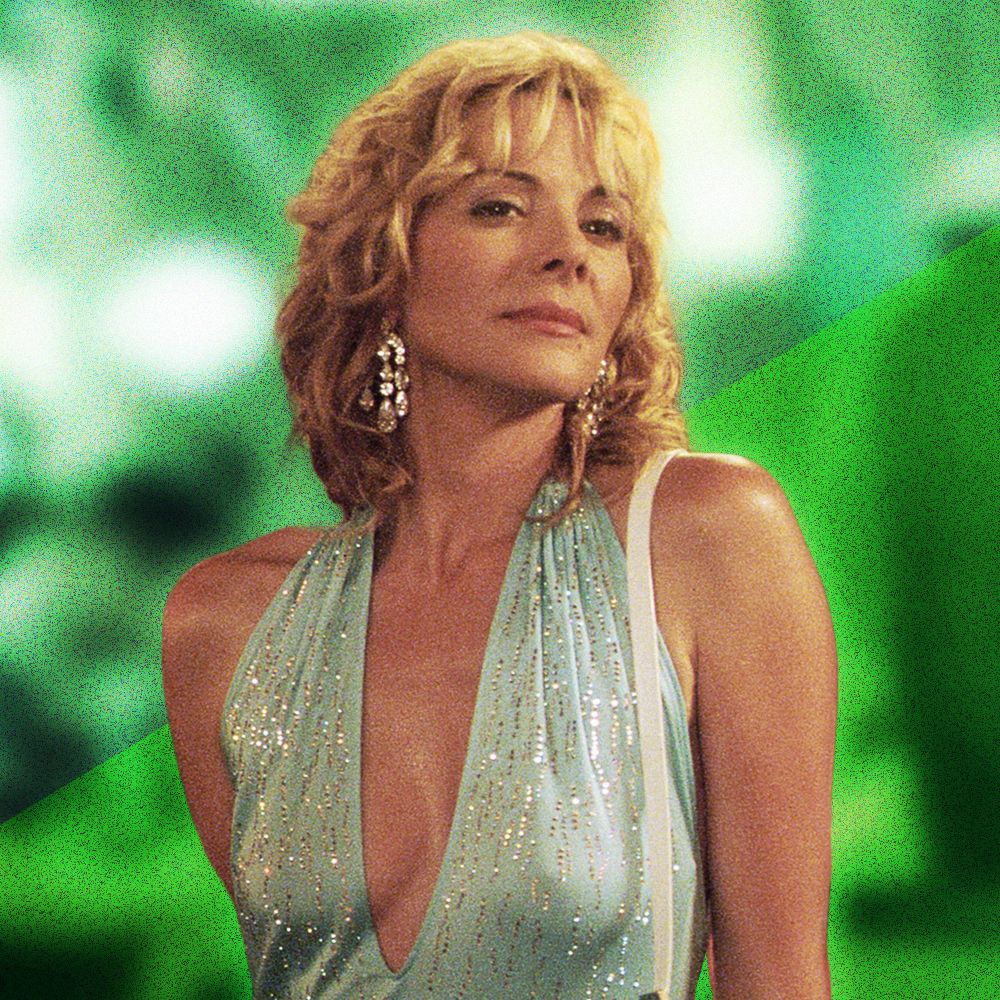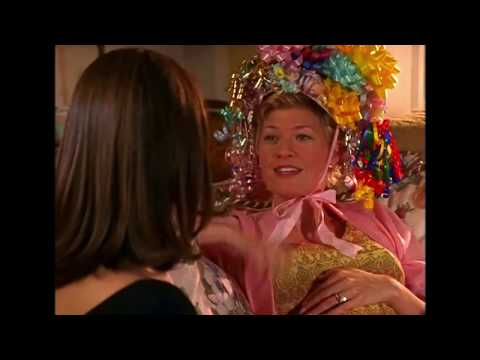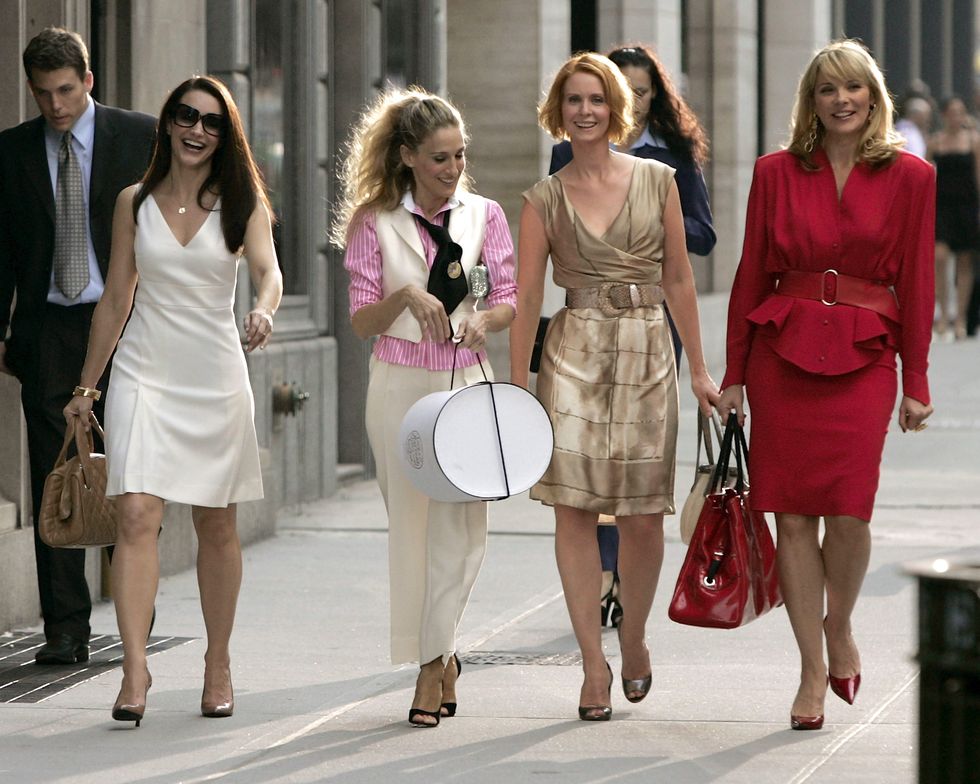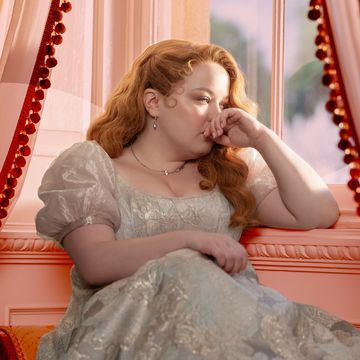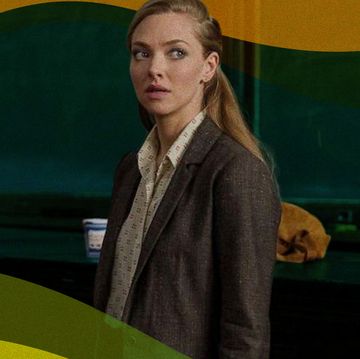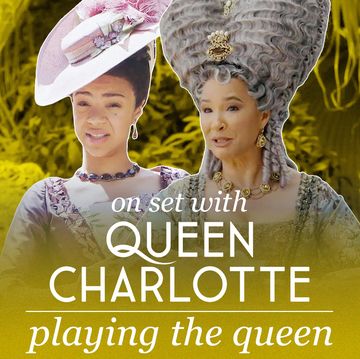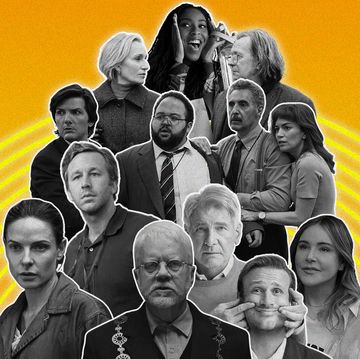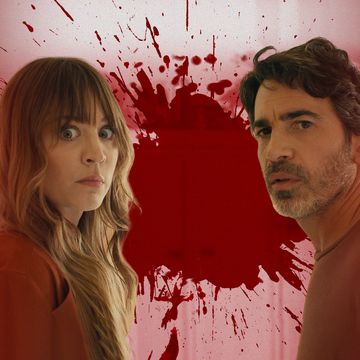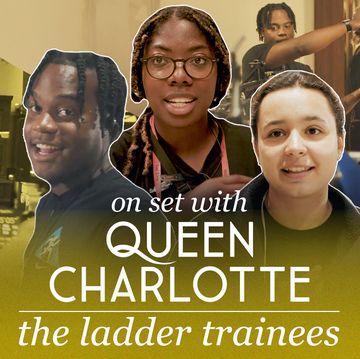Are you a Carrie, Samantha, Miranda, or Charlotte?
We all know Miranda Hobbes (Cynthia Nixon) is the best (at least until the And Just Like That … reboot), and therefore I identify most strongly with her. Carrie Bradshaw (Sarah Jessica Parker) has major “main character” energy, and unfortunately I share some of her worst characteristics — selfishness, bad with money, being a freelance writer. And Charlotte York (Kristin Davis) brings Upper East Side Pollyanna perceptions that may or may not work in 2023.
But as far as the best friend of Sex and the City, that’s Kim Cattrall’s Samantha Jones.
When Sex and the City premiered 25 years ago in June 1998, much was made about how frankly the show dealt with sex. Samantha, the most sexually liberated of the quartet, tells her friends in the pilot episode that single women in New York have two options: try to find a relationship or have sex like a man, without feelings. In a different episode, Charlotte is considering trying anal sex for the first time, and an emergency meeting is called to order in the back of a cab. The eavesdropping driver is a proxy for the audience, who were taken aback by how unabashedly the women spoke about sex at the time.
While plenty of sex was shown on-screen, it’s notable that many memorable scenes feature the foursome talking about sex rather than having it. The girls are showcasing their connection and bonding over shared values, memories, and jokes. That’s what really resonated with its audience and is the show’s most enduring hallmark: friendship.
Carrie is at the center of the squad, and interactions between the others usually branch out from there. There is some debate over whom exactly Carrie met first. The spin-off book series and short-lived but underrated CW show based on it, The Carrie Diaries, would have us believe that Carrie encountered Samantha during Carrie’s early years in the city. However, the poorly received and better left undiscussed second movie opens with a flashback scene that details how she met each friend, and Samantha comes last. This would conceivably explain Samantha’s disconnect from the other characters at times, particularly Charlotte.
While Samantha and Charlotte don’t always see eye to eye, Samantha’s first big grand friendship gesture comes in the form of sticking up for Charlotte in a season one episode, which immediately became one of my favorites. The women are going to the baby shower of one of their friends, reformed party girl Laney (Dana Wheeler-Nicholson). Charlotte discovers that Laney has stolen her baby name, Shayla (side bar: While Shayla might be a quintessential millennial, mashed-up baby name akin to Kayleigh, Shayleigh, Keeley, and Kelsey, Waspy Charlotte would never veer away from the traditional names like Lily and Rose that she ultimately names her future children), and upon hearing this, Samantha doesn’t hesitate in throwing down for Charlotte. Samantha, who’s already rankled the suburban moms by showing up in a braless, midriff-baring top and not being beholden to the institutions of marriage and motherhood, immediately puts her arm around Charlotte and ushers her out of the party and back to their concrete jungle, where they’re permitted to do and be interested in other things.
I loved this episode when I watched it in high school, back when I thought I would have four kids. It was one of the first madcap, get-out-of-the-city capers the girls went on that would become a hallmark of the show. I enjoyed seeing Samantha act somewhat uncharacteristically — though I would posit that she’s arguably the most maternal of the four and not just because she’s the oldest — such as standing up for Charlotte over the frivolity of a baby name when Charlotte wasn’t even pregnant, as one mother at the party reasoned. But rewatching it now, as a woman of Charlotte’s, Carrie’s, and Miranda’s age who is decidedly not having children and, like Samantha, revels in the freedom I’m granted because of it, it hits differently. Many other episodes have since usurped the baby-shower episode, entitled “The Baby Shower,” as my favorites, but the peeling back of one of Samantha’s many layers still holds a place in my heart.
One such episode is “Critical Condition” from the truncated fifth season, in which Carrie encounters “Face Girl” Nina Katz and gets reviewed by Michiko Kakutani in The New York Times. Perhaps not coincidentally, another “Samantha as best friend” example comes from this episode, and again, despite Samantha being the most anti-natalist of the four, it’s to do with babies.
Miranda gave birth to Brady in the season four finale and is struggling with single motherhood, a high-powered job, and lack of support from friends and family. Charlotte was initially resentful that, despite her lazy ovary and Steve’s testicular cancer and subsequent orchiectomy, Miranda got pregnant from a one-night stand without even trying, while Charlotte’s going through a divorce from her impotent ex-husband who couldn’t give her a baby.
Despite Carrie calling Miranda to complain about Nina, a booker for Saturday Night Live who dated her ex Aidan (John Corbett), Carrie thinks Samantha needs to be more supportive of Miranda’s new motherhood. “When he’s in college, I’ll take him for a drink and flirt with his friends,” Samantha bargains.
Samantha ultimately gives Miranda, who’s had many questionable hairstyles over the course of the series, her exclusive hair appointment as a goodwill gesture. Samantha may hate it when people with babies expect everyone around them to “turn into a Norman Rockwell painting,” but she’ll always show up for her child-having friends because they’re not “people; [they’re] our friend[s].”
Women with children experience more stress, as Miranda’s storyline and, indeed, any woman with a child will attest. This can have long-term effects, with a 2006 American Journal of Human Biology study of births in Poland finding that for each child given birth to, a mother’s life expectancy was reduced by 95 weeks. The study didn’t include adoptive parents (or acknowledge that people other than women can and do give birth). Sorry, Charlotte.
For all its faults, Sex and the City did a lot to normalize child-free and unpartnered lifestyles and chosen families. Unsurprisingly, another one of my favorite episodes is the season six installment, “A Woman’s Right to Shoes,” in which Carrie’s shoes get stolen at her friend Kyra’s (Tatum O’Neal) kid’s birthday party, and when Carrie complains about it, her friend dismisses her concerns as petty. Carrie raises her by registering herself at Manolo Blahnik. In typical Carrie fashion, it is supremely childish, but she’s entitled to it after spending so much money on the public displays of love and the children those unions hath wrought.
It’s no coincidence that many of these displays of platonic affection fly in the face of common perceptions of single and child-free people — nay, single and child-free women — for which Samantha is the quintessential boogeyman, flaunting her body and hedonism everywhere she goes. Laney says as much, calling Samantha’s “barhopping and bed-hopping … sad,” while Kyra repeats the word “crazy”— a catchcry often leveled at childless women — when it comes to Carrie’s “shoe detective work.” But women who don’t have to perform emotional and physical labor in the home and the relationships that exist therein are freer to give that love to their friends and community.
As the two child-free women of the group, it’s for this reason that Carrie and Samantha might have the greatest kinship, or at least one that Miranda and Charlotte cannot understand or penetrate. However, that would appear to only go one way in the direction of Carrie.
In two more season five episodes, Carrie is back on her bulls--t — does she ever get off it? — with the release of her first book. Samantha, acting as her publicist, gets a chemical peel and, with it, a bad reaction (been there before with the launch of my own first book, as luck would have it) ahead of Carrie’s launch party. Carrie insists that Samantha come and take off her face veil, which she’s worn in an attempt to preserve some of her dignity and self-esteem. Carrie spends the remainder of the party shunning Samantha and then insists she goes home.
“I wouldn’t have gone out in public like this for anyone but you,” says Samantha. I don’t think we could say the same for Carrie.
Later, as part of the publicity campaign, Samantha has booked some events for Carrie on the West Coast, and Carrie wants to take a cross-country sleeper train instead of flying five hours because she’s quirky like that. The whole trip is a disaster, and when they finally make it to their San Francisco hotel room, Samantha takes a relaxing bath, only to have Carrie kick her out so she can have a booty call with Big (Chris Noth).
The last great examples of Samantha’s undying devotion to her friends as the unofficial mother figure of the group occur in the movies: In 2008’s Sex and the City, she’s able to turn Carrie’s ill-fated honeymoon into a Mexican girls’ trip, and in the 2010 sequel, she shepherds them on another working holiday to the United Arab Emirates, and that’s all I’ll say about that.
The movies signified the descent of Sex and the City as we knew it into privileged nonsense and gross materialism at best. Samantha too had become a caricature, and coupled with rumors of tension between Cattrall and the rest of the cast, particularly Sarah Jessica Parker, it was no surprise that she wouldn’t be returning for the reboot, And Just Like That.
The series begins in post-pandemic 2021, leaning hard into the fantasy that the coronavirus is over. Passing mention is made to Samantha up and moving to London because she was personally affronted that Carrie couldn’t afford to keep her on as a publicist. The character appears a few more times via text messages, and she sends flowers to Carrie when Big dies in the series opener. Samantha’s existence within the Sex and the City canon as a ghost hovering over the cringeworthy shenanigans of Carrie, Charlotte, and Miranda as they try to move forward in a culture that they no longer understand is an apt metaphor for the way a fragmented friendship lingers long after ties have been cut. But true fans of the original know that Samantha would never take Carrie’s financial woes personally.
As I posited at the outset of this piece, Sex and the City is a show about friendship. I do think her texts with Samantha and an off-screen meetup in Paris in the And Just Like That season one finale honor the character and what her friendship meant to the show realistically and messily, just like the dissolution of real-life friendships. Just because you break up with a friend doesn’t mean their presence stops lingering. What’s that Charlotte says about it taking half as long to get over someone as you were with them? Carrie will be reckoning with Samantha for a while yet, with the announcement that Cattrall has filmed a solo scene for the second season finale in which she’s on the phone with Carrie. And revisiting the ways that Samantha went out on a limb for her friends, which were so rarely reciprocated, proves that we will be too.
Scarlett Harris is a culture critic and author of A Diva Was a Female Version of a Wrestler: An Abbreviated Herstory of World Wrestling Entertainment. You can follow her on Twitter @ScarlettEHarris.
Get Shondaland directly in your inbox: SUBSCRIBE TODAY
